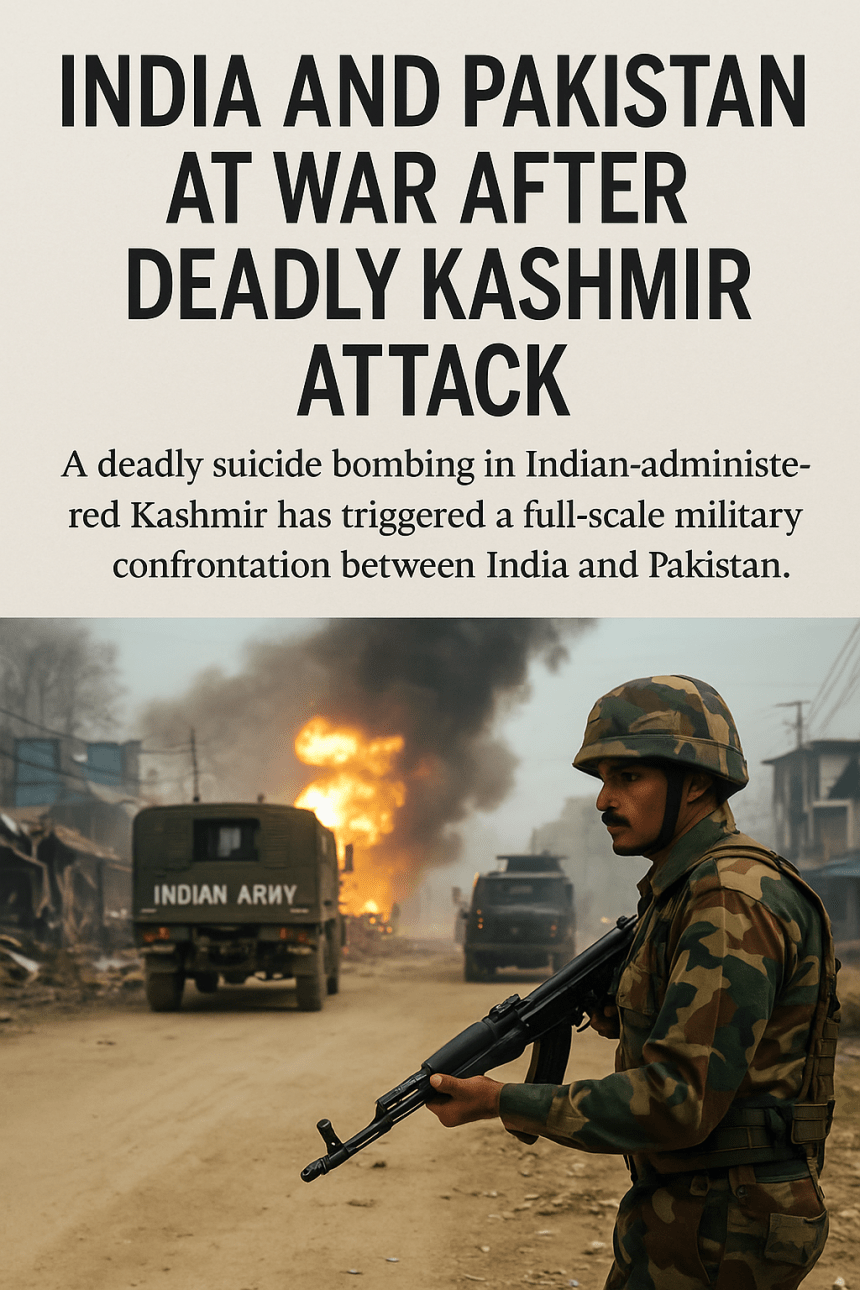A deadly suicide bombing that claimed the lives of 26 Indian Hindu pilgrims in the Pahalgam region of Kashmir has sparked a full-scale military confrontation between two nuclear-armed neighbours — India and Pakistan — plunging South Asia into its most serious crisis in over two decades.
A Turning Point: The April 22 Attack
The attack, carried out on April 22, targeted a bus of religious pilgrims in Indian-administered Kashmir. Indian intelligence agencies quickly attributed responsibility to Lashkar-e-Taiba, a Pakistan-based militant group long accused of fomenting unrest in the region. The group has denied involvement, and Pakistan’s government has publicly condemned the bombing while denying any support for the perpetrators.
Despite these denials, India responded with force, launching what it called “Operation Proud Revenge”, a coordinated series of airstrikes on May 7 across militant sites in Pakistan-administered Kashmir and parts of Punjab Province. The Indian Air Force stated it had targeted weapons caches, terror camps, and communication hubs allegedly used by Lashkar-e-Taiba and Jaish-e-Mohammed.
Pakistan Retaliates
Within hours, Pakistan launched retaliatory airstrikes, calling its response “Operation Bunyan Marsoos.” These strikes reportedly targeted military installations in Indian Punjab, including the Pathankot airbase. Pakistani authorities claim to have downed Indian drones and neutralised strike teams, though these reports remain unverified.
Both sides have confirmed military casualties. Independent sources estimate that dozens of soldiers and at least 12 civilians have been killed so far in the cross-border hostilities.
Border Tensions and Airspace Closures
Heavy artillery shelling along the Line of Control (LoC) continues to escalate, displacing hundreds of civilians in both India’s Jammu & Kashmir and Pakistan’s Azad Kashmir. Airspace closures in northern India and central Pakistan have caused major disruptions to commercial flights and cargo routes.
The Pakistan Civil Aviation Authority officially closed all airports north of Islamabad, while India issued no-fly zones in parts of Jammu and Punjab. Both countries have now placed their nuclear command units on heightened alert.
Global Concern Over Nuclear Escalation
The conflict has prompted immediate concern from world leaders. The United Nations has called for “maximum restraint” while urging both nations to return to dialogue. The G7, in a joint statement, warned that “continued escalation may destabilise not only South Asia but global security.”
U.S. Secretary of State Anthony Blinken, speaking from Brussels, urged both India and Pakistan to avoid any steps that could lead to “irreversible consequences.”
China, a key regional stakeholder with ties to both nations, has also called for de-escalation, while offering to act as a neutral intermediary.
A Longstanding Faultline Reignites
India and Pakistan have fought three full-scale wars since 1947, two of which were directly linked to the Kashmir conflict. The current escalation threatens to undo years of diplomatic progress and backchannel negotiations facilitated by the UAE and Russia.
Analysts note that this crisis reflects a wider breakdown in cross-border intelligence sharing, rising extremism, and the dangerous intersection of religion, politics, and nationalism in both countries.
What Comes Next?
While both governments insist they do not seek a prolonged war, troop reinforcements along the LoC and in the Punjab sector suggest a prolonged standoff may be inevitable unless international mediation succeeds.
With nuclear rhetoric now entering the discourse, the world is watching closely — hoping that backdoor diplomacy can stop the descent into further destruction.
Contact: newsdesk@nationalpost.co.za
For licensing & syndication: media@republicafrica.co
© 2025 The National Post. All rights reserved.







